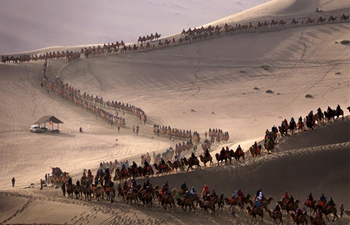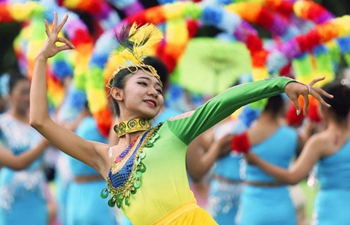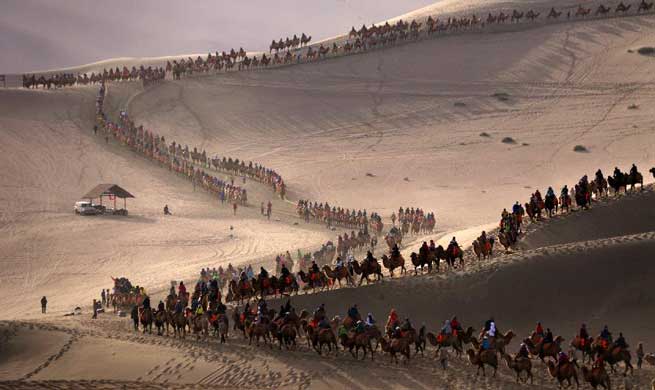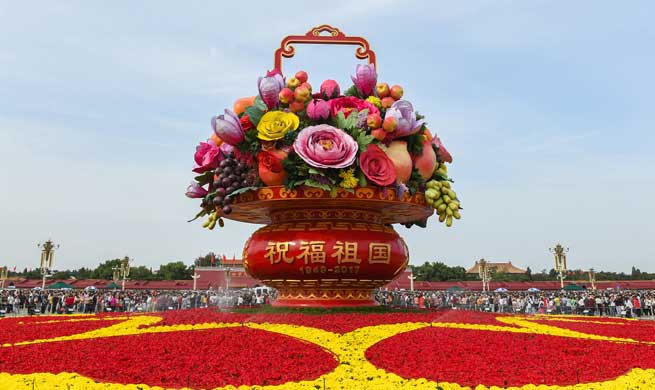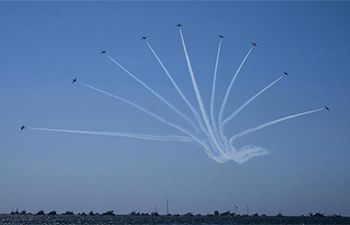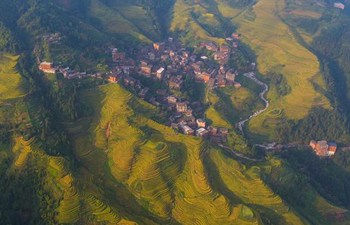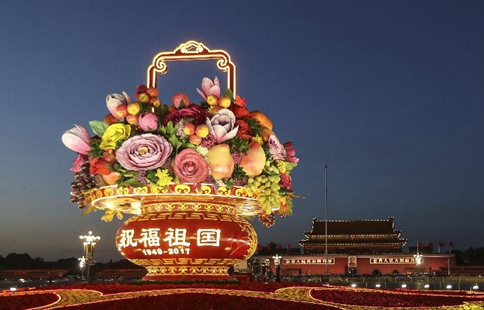by Ahmed Shafiq
FAYOUM, Egypt, Oct. 2 (Xinhua) -- Egyptian farmer Ahmed Rabei will follow the steps of his government and enlarge the area planted with cotton in an effort to revive the country's rewarding industry that can help improve Egypt's stagnant economy.
Rabie, a villager from Fayoum province, some 100 km south of Cairo, cultivated one feddan (1 feddan=1.038 acres) of land with the finest long-staple cotton (known in Egypt as Giza 95). He will double his cotton field next year.
"The ministry of agriculture helps me much ... they provided me with subsided seeds and fertilizers necessary for the treatment of the plants to get high-quality cotton," Rabie said, watching his family members picking the "white gold" of Egypt.
Rabie, who always sold his cotton to local manufacturers, said the prices this year are good.
"I can say that farmers can earn good money this season ... I urge other farmers to double and even triple their fields cultivated with cotton for their own and the country's good," Rabie said as he checked the quality of his harvested cotton.
Cultivating one feddan of long-staple cotton costs around 10,000 Egyptian pounds (568 U.S. dollars).
Egyptian cotton is an extraordinary commodity that has played an important and vital role in Egypt's economic, social, and political history during the past two centuries.
Egypt's unique climate and fertile soil are ideal for cotton cultivation. From the early 1800s up to the present, Egyptian cotton has always been synonymous with luxury and quality.
After the popular revolution in January 2011, cotton industry has witnessed recession due to the lack of government care, which caused a quality degradation of Egypt's most famous crop.
However, the government has set plans to restore the important sector by doubling the production of high-quality cotton after years of suffering.
"The government has a plan to plant half a million feddans with cotton by 2019, which means doubling the areas planted with cotton," Hassan Gouda, deputy minister of agriculture in Fayoum, told Xinhua.
The Egyptian official said the total area planted with cotton across the country this year is 220,000 feddans." Last year only 130,000 were cultivated with cotton."
Gouda said Egypt is back on track to be the world's leading cotton producer, adding that the ministry has set plans to double the cotton fields in Fayoum, the second largest producer of cotton in Egypt after Kafr al-Sheikh province in Delta.
"The total area planted with cotton in Fayoum is 13,092 feddans ... this will definitely be doubled by 2019," he said proudly.
The Egyptian official said the average yield per feddan of cotton in Fayoum is 8 to 11 kantars (also known as qintar, a kantar equals to either 157 kilograms of seed cotton or 50 kilograms of lint cotton) per feddan, pointing out that the government has set a guaranteed price of 2,100 Egyptian pounds per kantar.
"Prices at local market range from 2500 to 2700 pounds per kantar. The government has set the price to ensure that farmers will not sell at lower prices; the price could increase," Gouda stressed.
The deputy minister said the government pays much care to cotton farmers as the agriculture ministry follows the cotton planting season from A to Z and provides farmers with high-quality seeds as well as technical assistance before, during and after the cotton season.
In an attempt to encourage farmers to plant cotton, the government has decided to subsidize 300 pounds per kantar for farmers whose produce exceeds 10 kantars.
Experts say that Egyptian cotton is high on demand worldwide this year because of the devaluation of the Egyptian pound in addition to an international campaign against fake cotton.
The return of Egypt's cotton to international markets will provide a significant export opportunity needed by the Middle East country which has been suffering economically for almost seven years due to security and political issues.
In July, the agriculture ministry announced it targets 1.4 million kantars of long-staple cotton to be exported, compared to 700,000 kantars last year.
The most populous Arab country has been suffering economic recession due to political instability and relevant security challenges following two uprisings that toppled two heads of state since 2011.
The turmoil led to a decline in the country's foreign currency reserves, foreign investments, tourism revenues and others.
Besides floating its local currency's exchange rate to face dollar shortage, Egypt started last year a strict three-year economic reform program including austerity measures, fuel subsidy cuts and tax increase.
The program is encouraged by a 12-billion-dollar loan from the International Monetary Fund.




